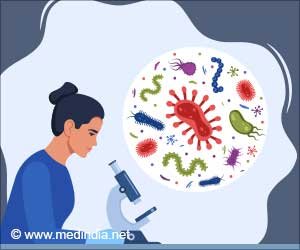Could Probiotics Treat Gout?

improved certain blood parameters in study participants related to oxidative stress, liver damage, and metabolic syndrome.
The study was recently published in the journal Frontiers in Microbiology (
).
In this particular study, researchers examined a particular probiotic called Ligilactobacillus salivarius (L. salivarius). This probiotic is a type of bacteria that normally lives in the body’s gastrointestinal tract.
Firstly, different strains of L. salivarius were evaluated to see which was best at metabolizing purine-related metabolites. They reported L. salivarius CECT 30632 to be the most efficient strain for the conversion of uric acid, inosine, and guanosine.
Advertisement
Next, scientists conducted a randomized controlled clinical trial involving 30 participants with hyperuricemia and a history of recurrent gout episodes.
Half of the study participants received L. salivarius CECT 30632 for 6 months. The other half of the participants took the gout-management drug allopurinol for 6 months.
The findings suggest that people with gout who received the L. salivarius CECT 30632 probiotic had a significant reduction in the number of gout episodes and the use of gout-related drugs.
Moreover, those who used the probiotic also experienced an improvement in some blood parameters related to oxidative stress, liver damage, and metabolic syndrome.
What is Gout?
Gout occurs when urate crystals accumulate in your joint, causing the inflammation and intense pain of a gout attack. Urate crystals can form when you have high levels of uric acid in your blood. Your body produces uric acid when it breaks down purines substances that are found naturally in your body.
Uric acid build-up can sometimes occur if a person eats a diet high in purine. High-purine foods and beverages include alcoholic beverages, shellfish, sardines, bacon, and organ meats.
If your kidneys are not able to fully remove the extra uric acid from your body, it can build up in the body and form needle-like crystals. These crystals cause inflammation, leading to joint pain.
What are the Symptoms of Gout?
-
Sudden pain in one or more joints of the body, especially a big toe. - Joints that are tender to the touch.
- Swelling surrounding the joints.
- Skin that appears red and/or feels hot around the joints.
Gout can appear in any joint in the body but particularly affects joints at the ends of limbs, such as toes, ankles, fingers, knees, wrists, and elbows.
What are Probiotics?
Probiotics are living microorganisms usually taken as dietary supplements. They can also be found naturally in fermented foods such as kefir and yogurt.
Probiotics are a mixture of ‘good’ live bacteria and yeasts that naturally live in the body. When ingested, probiotics help increase and balance the amount of ‘good’ bacteria in the body and aid in digestion.
Taking additional probiotics can also help rebalance the amount of ‘good’ and ‘bad’ bacteria in the body after taking antibiotic medication.
Previous studies have shown that probiotics can help with diarrhea, irritable.
The Need for New Gout Therapies
It is imperative to have new therapy options for gout as many people with gout also deal with other comorbidities, such as cardiovascular, kidney, and liver disease.
The recent findings can impact what medications can safely be used in these patients, so it is good to have a wide range of options, especially safe options like probiotics.
There is growing evidence that the gut microbiome plays a role in rheumatologic disease.
Previous research has suggested the microbiomes of patients with gout differ from those of healthy patients, so it is not surprising that there was a positive impact with probiotics.
Research has shown probiotics improve hyperuricemia and symptoms of gout, among other inflammatory diseases. In the research, the probiotic intervention reduced C-reactive protein (CRP), which led to serum uric acid improvement. Researchers state that it is necessary to evaluate the efficacy and optimal dosages of probiotics (3✔ ✔Trusted Source
Gut microbiota remodeling: A promising therapeutic strategy to confront hyperuricemia and gout
Go to source).
References :
- Treatment Options for Gout
– (https://www.ncbi.nlm.nih.gov/pmc/articles/PMC5624445/) - A randomized pilot trial assessing the reduction of gout episodes in hyperuricemic patients by oral administration of Ligilactobacillus salivarius CECT 30632, a strain with the ability to degrade purines
– (https://www.ncbi.nlm.nih.gov/pmc/articles/PMC9971985/) - Gut microbiota remodeling: A promising therapeutic strategy to confront hyperuricemia and gout
– (https://www.ncbi.nlm.nih.gov/pmc/articles/PMC9399429/)
Source: Medindia
Source link
#Probiotics #Treat #Gout



